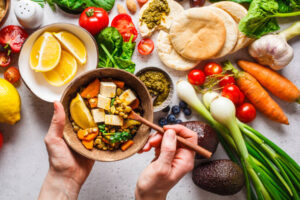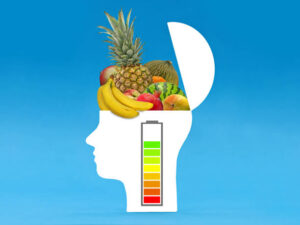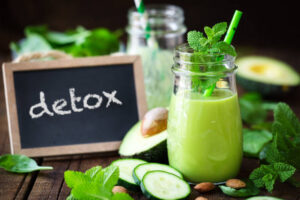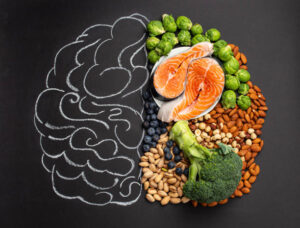Adopting a vegan diet for children has become a popular choice for many families, driven by concerns over health, ethics, and environmental sustainability. However, parents often ask whether a vegan diet can meet the nutritional needs of growing children.
The truth is that a well-planned vegan diet can absolutely provide all the nutrients a child needs to thrive, but it requires careful attention to ensure they receive adequate amounts of critical vitamins and minerals. In this guide, we will explore the essential nutrients, safe practices, and practical tips for raising a healthy, thriving child on a vegan diet.
Nutritional Foundations of a Vegan Diet for Children
Children’s nutritional needs are higher during their early years as they are growing rapidly. Unlike adults, their bodies are still developing, which means they need more of certain nutrients to support growth, development, and immune function. A vegan diet can support these needs as long as it includes a wide range of plant-based foods that offer a variety of vitamins, minerals, and other essential nutrients.
Protein: A Cornerstone of Growth
Protein is essential for every cell in the body, contributing to muscle development, immune system function, and overall growth. Children on a vegan diet must obtain sufficient protein from plant-based sources.
Top Vegan Sources of Protein:
- Legumes: Lentils, chickpeas, black beans, and kidney beans are rich in protein and fiber.
- Soy Products: Tofu, tempeh, edamame, and soy milk are great sources of complete protein.
- Whole Grains: Quinoa, farro, bulgur, oats, and barley provide both protein and fiber.
- Nuts and Seeds: Almonds, peanuts, sunflower seeds, chia seeds, and pumpkin seeds offer protein as well as healthy fats.
- Seitan: Made from wheat gluten, seitan is a high-protein meat alternative, although it should be consumed in moderation due to its high gluten content.
Meal Ideas:
- Chickpea salad with tahini dressing.
- Tofu stir-fry with broccoli and bell peppers.
- Quinoa and black bean bowls.
- Smoothies with pea protein or hemp protein powder.
Iron: Vital for Oxygen Transport and Energy
Iron is necessary for the production of hemoglobin, which carries oxygen in the blood. It also plays a role in immune function and overall energy levels. There are two types of iron: heme iron, found in animal products, and non-heme iron, found in plant-based foods. Non-heme iron is less readily absorbed by the body, so it’s important to pair iron-rich foods with vitamin C-rich foods to enhance absorption.
Top Vegan Sources of Iron:
- Legumes: Lentils, beans, and chickpeas.
- Leafy Greens: Spinach, kale, and Swiss chard.
- Whole Grains: Quinoa, oats, and fortified cereals.
- Nuts and Seeds: Pumpkin seeds, almonds, and cashews.
- Dried Fruits: Apricots, raisins, and prunes.
Tip for Iron Absorption: To maximize iron absorption, pair iron-rich foods with foods high in vitamin C, such as citrus fruits, bell peppers, tomatoes, and strawberries. For example, serve beans with a side of oranges or strawberries.
Calcium: Building Strong Bones and Teeth
Calcium is essential for developing strong bones and teeth, especially during childhood when bone development is rapid. While dairy products are a common source of calcium in omnivorous diets, vegan children can obtain calcium from several plant-based sources.
Top Vegan Sources of Calcium:
- Fortified Plant Milks: Almond, soy, oat, and rice milk are often fortified with calcium.
- Tofu: Calcium-set tofu can be a significant source of calcium.
- Leafy Greens: Collard greens, kale, bok choy, and turnip greens provide bioavailable calcium.
- Fortified Cereals: Many cereals are fortified with calcium, as are some fruit juices.
- Nuts and Seeds: Almonds and tahini are rich in calcium.
- Beans: White beans, chickpeas, and navy beans also contain calcium.
Meal Ideas:
- Tofu scramble with vegetables.
- Smoothie made with fortified almond milk and leafy greens.
- Kale salad with sesame seeds.
Vitamin B12: Crucial for Brain Development and Red Blood Cells
Vitamin B12 is one of the most important nutrients that requires special attention on a vegan diet because it is naturally found only in animal products. Vitamin B12 is essential for proper brain function, nerve health, and red blood cell formation. A deficiency in B12 can lead to developmental delays, neurological problems, and anemia.
Sources of Vitamin B12 for Vegan Children:
- Fortified Foods: Many plant-based milks, breakfast cereals, and nutritional yeast are fortified with B12.
- B12 Supplements: Since B12 is not available in significant amounts from plant sources, a daily or weekly B12 supplement is recommended for vegan children.
Tip for Parents: Be sure to regularly include B12-fortified foods in your child’s diet or provide a B12 supplement, especially for infants, toddlers, and growing children who may not be getting enough through fortified foods alone.
Vitamin D: Supporting Bone Health and Immune Function
Vitamin D helps the body absorb calcium and plays a crucial role in bone health, immune function, and mood regulation. While vitamin D is found in some plant-based foods, its primary source is sunlight. In areas with limited sun exposure or during winter months, a supplement may be necessary.
Top Vegan Sources of Vitamin D:
- Fortified Plant Milks: Look for vitamin D2 or D3 (vegan-friendly) fortified varieties.
- Fortified Cereals: Many breakfast cereals are fortified with vitamin D.
- Mushrooms: Some varieties of mushrooms, such as maitake, exposed to sunlight, contain vitamin D2.
- Vitamin D Supplements: A vegan D3 supplement (derived from lichen) is ideal for children who need extra vitamin D.
Tip for Parents: Consider a daily vitamin D supplement or ensure your child gets plenty of sun exposure when possible.
Omega-3 Fatty Acids: Supporting Brain Health
Omega-3 fatty acids are essential for brain development and cognitive function. While omega-3s are commonly associated with fatty fish, vegan children can get these essential fats from plant-based sources.
Top Vegan Sources of Omega-3 Fatty Acids:
- Flaxseeds: Ground flaxseeds are an excellent source of alpha-linolenic acid (ALA), a type of omega-3.
- Chia Seeds: These tiny seeds are packed with omega-3s.
- Walnuts: Another great source of omega-3s.
- Hemp Seeds: High in both omega-3 and omega-6 fatty acids, supporting overall health.
- Algal Oil: A plant-based source of DHA and EPA, which are the omega-3s primarily found in fish.
Meal Ideas:
- Smoothies made with flaxseeds, chia seeds, and walnut butter.
- Oatmeal topped with hemp seeds and chia seeds.
Zinc: Important for Immune Function
Zinc is vital for immune function, cell growth, and wound healing. It is abundant in animal products, but vegan sources of zinc are also available.
Top Vegan Sources of Zinc:
- Legumes: Lentils, chickpeas, and beans.
- Whole Grains: Quinoa, oats, and wheat germ.
- Nuts and Seeds: Pumpkin seeds, cashews, and sunflower seeds.
- Tofu and Tempeh: These soy products are also good sources of zinc.
Tip for Zinc Absorption: Phytates in plant foods can inhibit zinc absorption, so soaking or sprouting beans, grains, and seeds can enhance absorption.
Special Considerations for Different Age Groups
Infants and Toddlers:
For babies under six months, breast milk or formula provides all the essential nutrients, including vitamin B12 and vitamin D. For vegan families, fortified soy-based infant formulas are the most reliable option. After six months, solid foods should be introduced, ensuring the inclusion of iron-rich foods, B12, and other key nutrients. Parents may need to offer B12 supplements and carefully monitor the child’s nutritional intake.
School-Age Children:
As children grow, their dietary needs evolve, and they become more active. Ensure they’re getting enough protein, iron, calcium, and vitamin B12 by including a wide variety of plant-based foods in their meals. Whole grains, legumes, nuts, and seeds should form the backbone of their diet, and parents may need to rely on fortified foods and supplements to meet certain nutrient requirements.
Teenagers:
During adolescence, nutritional needs increase due to puberty and growth spurts. Teens may require more protein, calcium, and iron. Vegan teens should focus on nutrient-dense foods and consider taking supplements for vitamin B12 and vitamin D to ensure they remain healthy. Peer pressure and dietary choices can sometimes be challenging, so guidance and education about the importance of proper nutrition are key.
Conclusion: A Well-Balanced Vegan Diet for Children
A vegan diet can provide everything your child needs for healthy growth, development, and overall well-being. It requires planning and knowledge to ensure they receive the necessary nutrients like protein, iron, calcium, vitamin B12, and vitamin D. By focusing on whole foods, fortified products, and appropriate supplements, parents can confidently raise vegan children who will thrive both physically and mentally.
Regular check-ups with a pediatrician or nutritionist are also essential to ensure that their nutritional needs are being met. With the right approach, a vegan diet can set the foundation for a lifetime of health, ethical living, and environmental awareness.







